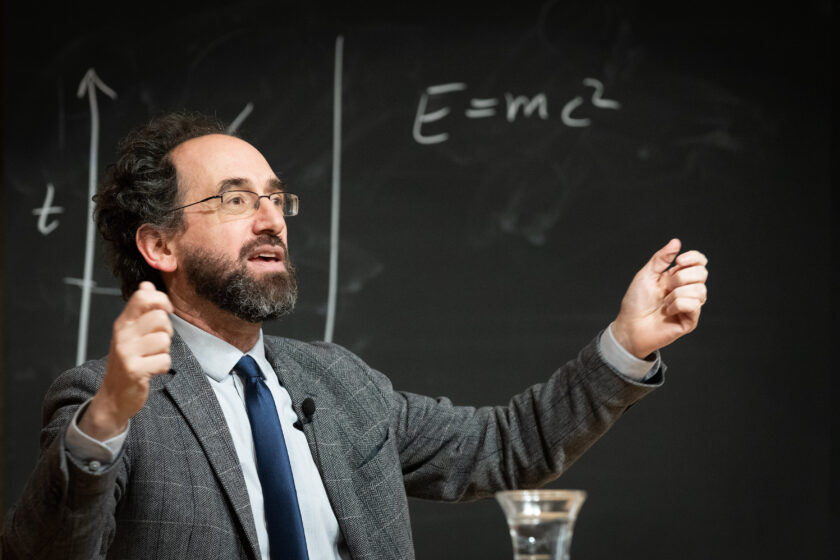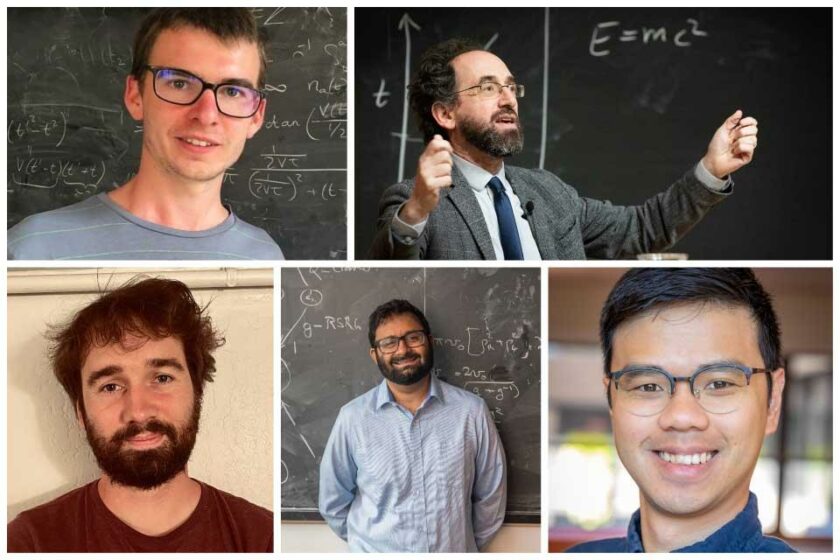A team of theoretical physicists including Somerville’s Professorial Fellow in Physics, Professor Steven Simon, has received a Frontiers of Science Award at the First International Congress of Basic Science in Beijing, China.

Professor Steven Simon. Copyright: IST Austria/Anna Stöcher (anna@schauen.at)
The award was presented to five current and former members of Oxford’s Rudolf Peierls Centre for Theoretical Physics, including two former DPhil students (Dr Glenn Wagner, now of the University of Zurich, and Dr Yves Kwan, now of Princeton University). The team also comprised Dr Nick Bultinck, a former Royal Society University Research Fellow at Oxford now on the faculty of Ghent University in Belgium as well as Oxford RPC faculty Professors Steve Simon and Siddharth Parameswaran.
The quintet was recognised for their contributions to understanding the physics of twisted bilayer graphene, a system built by layering two atomically thin sheets of carbon with a relative ‘magic angle’ twist of approximately one degree. The result is an example of a ‘moiré heterostructure’, in which quantum interference between the layers slows down electrons so much that the normally weak interactions between them become so strong that the electrons can form new phases of matter such as superconductors and magnets.
The 2018 discovery of this class of ‘moiré materials’ opened a new field of highly tuneable two-dimensional quantum materials. However, many puzzles about the original twisted bilayers remained stubbornly unresolved – most notably, the precise nature of the variety of insulating states and the mechanism driving superconductivity.
The team’s 2022 paper in Physical Review Letters offered a means of answering many of these unsolved questions by proposing a unified picture of the ‘normal’ state of the system. The team made their breakthrough by incorporating a single new ingredient – the strain between two layers – to their numerical simulations and analysis of symmetries of twisted bilayer graphene at temperatures or densities where it is not superconducting. The addition of this ingredient suggested a variety of experimental measurements consistent with a new form of order that they termed the ‘Kekulé spiral’. Subsequent imaging experiments conducted separately at Princeton and CalTech have confirmed the theory.
Speaking about the project, Professor Simon said, ‘The field of so-called “moiré materials” has exploded in the last few years, and we are discovering a wide range of new types of matter that we never expected to exist. The particular type of matter that we predicted, which has now been observed in experiment, is likely the tip of a very big iceberg.”
Professor Simon went on to give credit to his teammates: ‘It is really nice to be recognized for our theoretical work. But the lion’s share of the credit really belongs to my younger collaborators who did most of the heavy lifting on this project!’

Clockwise from top left: Dr Wagner, Professor Simon, Dr Kwan, Professor Parameswaran and Dr Bultinck
The Frontiers of Science Awards
The Frontiers of Science Awards are associated with the newly inaugurated International Congress of Basic Science, the first of which was held on 16 July 2023. The Awards recognise achievement ‘of the highest scientific value and originality’ across 34 areas of mathematics, theoretical physics, and theoretical computer and information sciences from papers published within the last five years.
This article is derived with thanks from an original Department of Physics news story.